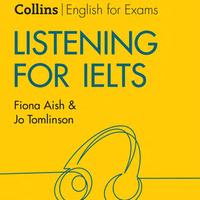3- 23
Charlotte: Do you want to make a start on our Natural Earth project? I think our idea of a lightning safety presentation is great, don't you, Rachel?
Rachel: Yes, I think it'll be really good ... I think the class will really like the practical already.
C: Great! Me too. I think we should divide it into two parts: what to do if you're inside when lightning strikes and what to do if you're outside when it strikes. What do you think?
R: I think that's good, but I think we need more. Something about planning for this kind of event. I think it's quite important to be prepared. And also, what to do if someone gets hit by lightning.
C: I can't believe I forgot that! Of course! Well what should we talk about in the first part?
R: I think we should say it's important to be aware. Lightning is always before rain, so don't wait until it rains. As Soon as you hear thunder or lightning, you should get inside.
C: Okay, yes. And then if you're indoors, you should avoid water. Stay away from doors and windows and don't use the telephone.
R: Or any electrical equipment. In fact, if you can, switch them off first. And you should wait half an hour after the last clap of thunder before going back outside.
C: And if you're outside when it storms, you also need to avoid water. Try and get inside as soon as possible. There are certain things you should avoid .. open spaces ... anything large and made of metal. And, of course, the obvious one: trees.
R: But we should mention that if lightning strikes very near you, you need to crouch down.
C: Oh! Is that right? I thought you had to stand still.
R: No, that's actually wrong - you're supposed to crouch down ...
C: ... and put your hands over your ears. The noise can damage your hearing if you don't. OK ... I think we've got quite a lot here. Only the last part to go, now: what to do if someone gets hit.
R: I think we should say that it's very rare for someone to get hit by lightning. Our talk sounds as if there is danger all around! We should try and make it sound a bit more reassuring!
C: Yes, you're right, we'll say it doesn't happen often, and that sometimes storms are even fun. It's just better to be safe than sorry. But what should we say about getting hit by lightning?
R: Well, I think we should say it's safe to touch people who've been hit by lightning ... they don't have any electrical charge! Try to get assistance from a first aider if there's one around. Otherwise it's just best to call for an ambulance. And we should remind our audience that eighty percent of lightning victims don't get fatally injured! That should calm everyone's nerves!

